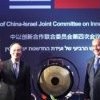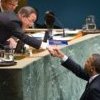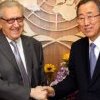Source
#Information Clearing House (USA)
16 articles
by Thierry Meyssan

Damascus (Syria) | 30 October 2018
"Before our very eyes"
by Thierry Meyssan

Damascus (Syria) | 28 November 2012
"Before our very eyes"
by Thierry Meyssan

Damascus (Syria) | 7 November 2012
"Before our very eyes"
by Thierry Meyssan

Beirut (Lebanon) | 1 November 2012
"Before our very eyes"
by Thierry Meyssan

Damascus (Syria) | 22 October 2012
"Before our very eyes"
by Thierry Meyssan

Damascus (Syria) | 16 October 2012
"Before our very eyes"
by Thierry Meyssan

Damascus (Syria) | 1 October 2012
"Before our very eyes"
by Thierry Meyssan

Damascus (Syria) | 25 September 2012
"Before our very eyes"
by Thierry Meyssan

Tehran (Iran) | 17 September 2012
"Before our very eyes"
by Thierry Meyssan

Tehran (Iran) | 12 September 2012
"Before our very eyes"
by Thierry Meyssan

4 September 2012
"Before our very eyes"
by Thierry Meyssan

29 August 2012
"Before our very eyes"
by Thierry Meyssan

Damascus (Syria) | 21 August 2012
"Before our very eyes"
by Thierry Meyssan

Damascus (Syria) | 14 August 2012
"Before our very eyes"
by Thierry Meyssan

Damascus (Syria) | 9 August 2012